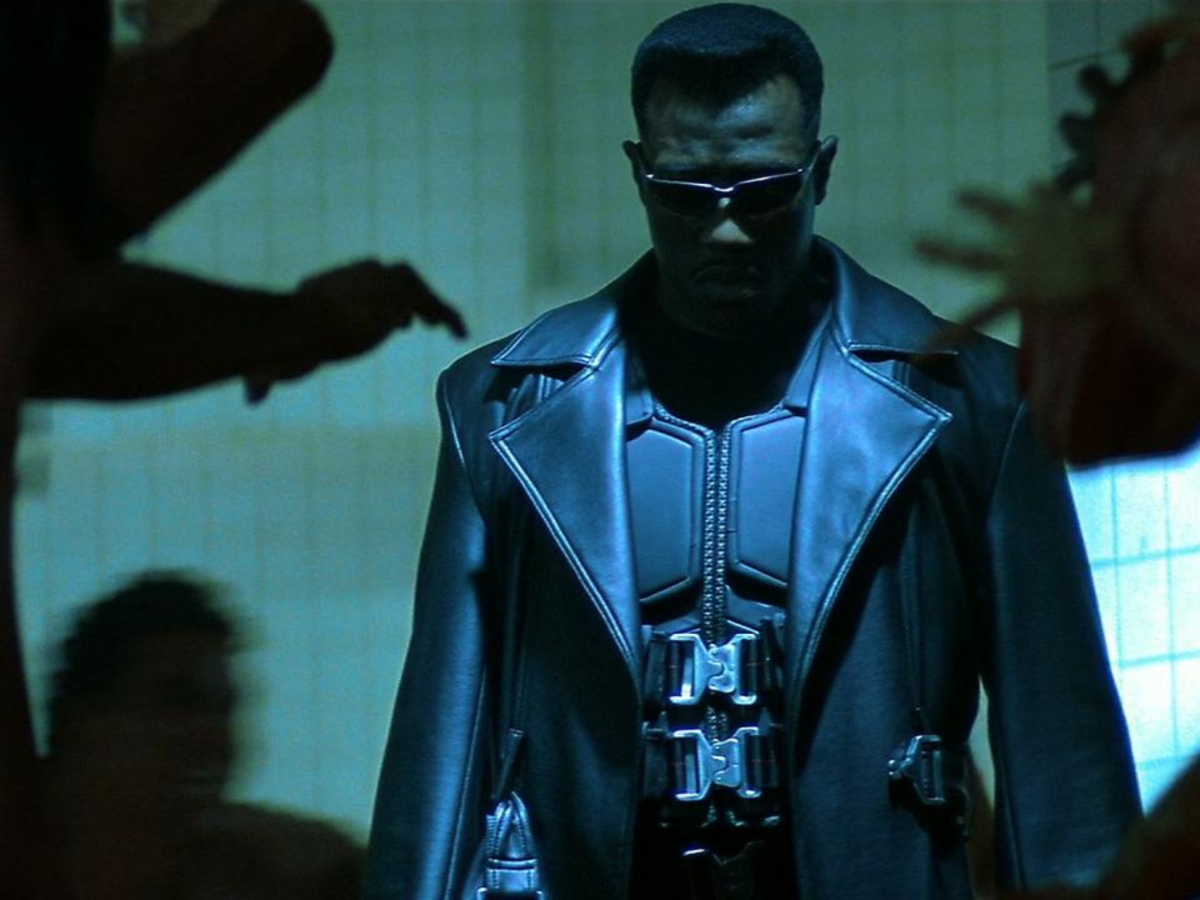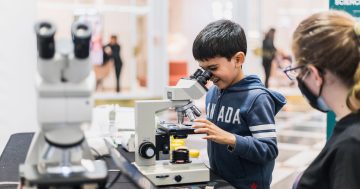
Blade. Image: Stephen Norrington, 1998.
MA15+ | 120 Mins | 1998 | DCP |US | D: Stephen Norrington
With superhuman strength and immunity to sunlight, human-vampire hybrid Blade (Wesley Snipes) hunts down vampires to avenge his mother’s death. When powerful vampire Deacon Frost (Stephen Dorff) threatens to unleash an ancient god, Blade and his old friend Whistler (Kris Kristofferson) team up with haematologist Karen Jenson (N’Bushe Wight) to stop them. Based on the Marvel anti-hero of the same name, this cult classic is often credited with popularising the superhero movie. Over 20 years later, Blade still offers a bloody good time.
‘an entertainingly macabre and excitingly staged action horror, with a propulsive energy’ – The Guardian
Join us after the film for a lively panel discussion exploring the myth and science of vampires and bats as portrayed in films like Blade.
Part of Science. Art. Film., a free monthly series that uncovers wacky, weird and wonderful facets of science and art in films. Presented by the National Film and Sound Archive of Australia, the Australian National Centre for the Public Awareness of Science and ANU Humanities Research Centre.
Panellists:
Pidge Greenwood is studying a Bachelor of Science with a focus on genetics and evolutionary sciences. They have a strong interest in vampires and the metaphors they often embody within fiction. Pidge has recently completed a biology research project as part of their degree, which explored the evolution of vampire tropes within popular movies using evolutionary analytical techniques.
Dr Brendan McMorran is an Associate Professor and research group leader working at the Australian National University’s (ANU) John Curtin School of Medical Research. Dr McMorran studies blood and diseases affecting the blood, his research spanning genetics, immunology and infectious disease. He has a particular interest in how platelets protect against diseases such as malaria.
Dr Joanna Haddock holds degrees in psychology and environmental science and completed a PhD in 2019 investigating the impacts of urban street lighting on insectivorous bats. Dr Haddock now uses her psychology expertise and her love of bats in the world of science communication as a Senior Threatened Species Officer in the Biodiversity and Conservation Division at the NSW Government.
Dr Alice Motion is an Associate Professor and Deputy Head of School at the University of Sydney’s School of Chemistry. Their research and practice centres on ways to better connect people with science, including empowering school students to participate in scientific research through citizen science collaborations. Alice writes for Chemistry World and founded Live from the Lab, a celebration of Australian arts and science.
Dr Anna-Sophie Jürgens (moderator) is a Senior Lecturer in Science Communication at the Australian National Centre for the Public Awareness of Science and the Head of the Popsicule – ANU’s Science in Popular Culture and Entertainment Hub. Her research explores the cultural meanings of science in different pop cultural media.
The details
What: Blade National Science Week free screening
When: 6 pm, Thursday 15 August 2024
Where: Arc Cinema, NFSA Acton
Cost: Free; bookings essential via the NFSA website












